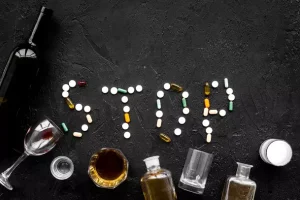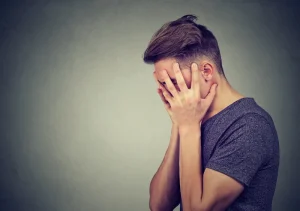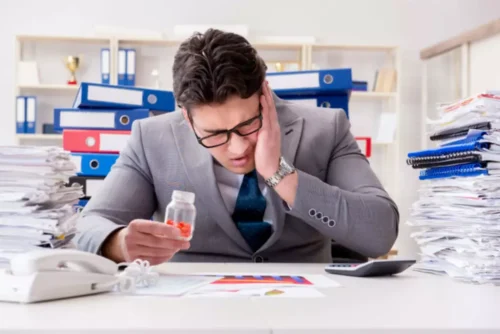
Chronic use of amphetamines can lead to serious physical and mental health problems. Because amphetamines reduce appetite and fatigue, they can cause vitamin and sleep deficiencies and malnutrition, and make people more prone to illness. The different types of amphetamines—and related drugs such as methylphenidate (e.g., Ritalin)—are stimulant drugs. They act like adrenaline, a hormone that is one of the body’s natural stimulants. Other drugs with similar effects include cocaine, ecstasy, caffeine, and many others.
Treatment and therapies for amphetamine abuse and addiction
Healthcare providers may prescribe amphetamines to people with ADHD or narcolepsy. Providers may also use amphetamines to treat obesity, though this is less common. Outpatient treatment for amphetamine addiction can be Halfway house a beneficial option for people who are unable to commit to an inpatient stay or who have less severe addictions. You live at home with a strong support system and commute to a treatment facility multiple days a week for counseling and other forms of therapy. Amphetamines are prescription medications or illegal substances that are also known as stimulants, as they speed up your metabolism and increase your alertness. When legally prescribed, they are typically used to treat attention-deficit hyperactivity disorder (ADHD) and narcolepsy.
Health Equity
If a person suspects that they may have a drug misuse problem, then they should consult a medical professional. It is important for people to remember that they do not need to feel embarrassed about seeking help. A person living with an addiction may find that they cannot control their use of a particular substance or activity, such as drinking alcohol, smoking, using recreational drugs, or gambling. Doctors can prescribe amphetamines to people living with ADHD, among other conditions. People may also use the drugs in an unprescribed manner, such as to stay awake for a study deadline or to suppress appetite. Though prescribed amphetamines are legal, taking the drugs without a prescription is illegal in the U.S.

Amphetamine Abuse and Addiction: Signs, Effects and Symptoms
Beginning in the 1980s, abuse of amphetamine skyrocketed as illegal methamphetamine production took off. This period also saw a surge in prescriptions of amphetamine drugs for treating attention deficit disorders. Abuse and medical use of amphetamines has continued to increase over the past decade. Amphetamines were first introduced in the 1930s as a remedy for nasal congestion, and marketed over-the-counter as an inhaler named Benzedrine.
- Recovery clinics will help you identify the underlying causes in detail so you can be aware of them, understand them, and look at practical ways of handling them.
- If you or a loved one is struggling with amphetamine addiction, seek professional help.
- If so, the reason might be that you resorted to using amphetamines to manage the symptoms of bipolar disorder or depression, without even knowing these problems were actually present.
- In a 2017 survey of Ontario students in grades 7 to 12, about two percent of students reported non-medical use of ADHD stimulant drugs in the past year.
- In some regions where amphetamine use is more common, such as certain parts of the United States and Southeast Asia, rates of amphetamine addiction may be higher.
No matter where you live, there is a drug rehab center that can help you overcome your addiction. Pure amphetamines are white, odourless, bitter-tasting crystalline powders. They may be whitish with traces of gray or pink and may be a coarse powder, or in crystals or chunks. Methamphetamine resembles shaved glass slivers or clear rock salt. The immunoassay tests done during initial screening are intended to detect a wide range of compounds that are chemically similar and that react with antibodies contained in the reagents.

A person may need treatment in a therapeutic community in which they will stay at a residence for a long period. A person should make sure that they take their prescription drugs as their doctor instructs and read any leaflet information to check for potential interactions with alcohol and amphetamine addiction other drugs. A person should only take medication that a doctor prescribes for them and should store their medications safely.

Where can I find help, treatment and support?
Substances such as alcohol, marijuana and nicotine also are considered drugs. When you’re addicted, you may continue using the drug despite the harm it causes. Undergoing a medical detox from amphetamines is the first action to take. This needs to be https://ecosoberhouse.com/ done carefully to avoid any dangerous side effects. A detox will successfully cleanse your body of all traces of the drug.The second course to take is therapy treatment. We know that an addiction to amphetamine develops due to underlying reasons.
Drug Type
- Participating in a 12-step treatment program and getting individual counseling may reduce your chances of relapse and improve your chances for recovery.
- In animal studies, methamphetamine increased viral replication; in human methamphetamine abusers, HIV caused greater neuronal injury and cognitive impairment compared with non-drug abusers.
- But as with any prescribed medication, there are potential side effects.
- A person may seek to repeat the good feeling and come to rely on the substance or activity.
They’re effective in helping manage attention deficit hyperactivity disorder (ADHD) or narcolepsy, but they’re also prone to misuse and abuse. It may be done by family and friends in consultation with a health care provider or mental health professional such as a licensed alcohol and drug counselor, or directed by an intervention professional. It involves family and friends and sometimes co-workers, clergy or others who care about the person struggling with addiction. If your drug use is out of control or causing problems, get help. The sooner you seek help, the greater your chances for a long-term recovery. Talk with your health care provider or see a mental health provider, such as a doctor who specializes in addiction medicine or addiction psychiatry, or a licensed alcohol and drug counselor.

